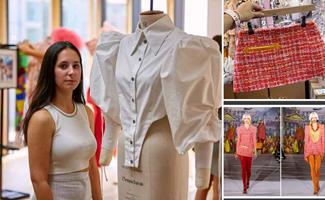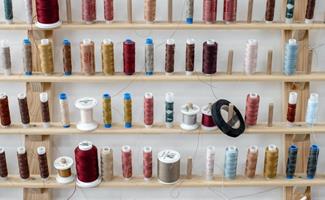The lure of glamorous and trendy fashion has gripped the world, but seldom do people give a thought to the waste and damage it produces. In a time of instant buying and consuming, it becomes all the more integral that we bring the element of sustainability into fashion design.
This industry has skyrocketed to fame due to an impressive growth-based model which has flooded the market with cheap clothing. Low-quality garments have low durability and therefore promote constant buying, also known as ‘fast fashion.’ Statistical data show a spike in yearly clothing consumption of 60% between 2000 and 2014.
High-demand for clothing pushes brands to produce new monthly fashion ranges and the planet and its resources bear the brunt of this as many chemicals are used to turn raw materials into wearable clothing.
Consumers are becoming more aware of the toxicity that fast fashion brings and are searching for more bio-friendly options and this is something that fashion courses focus on.
This blog highlights some pragmatic measures that the fashion industry needs to take to maintain a healthy balance between fashion and the environment.
Choosing sustainable material
We all love our jeans as they’re an iconic fashion statement. For years, they’ve remained a favourite due to their comfortable elasticity, but little do we know that this stretchiness comes from synthetic materials derived from plastic. This means that while you can easily throw away your jeans, nature can’t recycle them as easily.
Textile fashion design courses focus on the importance of good materials for clothing, but right now, there’s a dire need for sustainable materials. In the case of jeans, many manufacturers are focusing on creating something that can decompose within months. Initiatives such as the ‘Better Cotton Initiative’ work to create greener jeans that suit both wearers and the environment.
Using recycled raw materials
Some of us know fabrics well and are picky with what we wear, yet we have no clue about the process that goes in creating our favourite garments. You’d be surprised to learn that most of your clothing isn’t made of cotton, but synthetic polymer polyester.
To create this raw material, around 70 million barrels of oil is used every year. We are so dependent on this fabric that we cannot completely do away with it, as it’s durable, easy to clean, lightweight and affordable; one option, is to switch to recycled polyester fabric that emits substantially less emission. The fashion industry must also sort out a long term alternative for this because, despite recycling, polyester has many cons.
Better business models
Fashion is fun and fabulous but it must not come at a heavy cost to the environment. The speed at which new trends are being pushed out by the fashion industry, there is fear that this consumerist attitude will choke the environment. While people have to make more considerate choices, companies have to resort to a business model that supports the sustainable production of goods.
This transition will not be easy and will require government support and funding. To take a firm step in this direction, the issue must be addressed and students that choose a fashion design course must focus on innovative ideas.
Put an end to fast fashion
Completely doing away with fast-fashion and focusing on durable clothing is essential. Emphasis should be placed upon high-quality products that don’t need to be replaced within a short timeframe. Customers can wear these clothes for a long time and therefore, would be willing to pay a good price.
This way, companies can compensate as limited stock can be sold at a higher value. Collective interest towards constantly changing trends can be shifted to ‘timeless’ or vintage pieces that last for longer and look good. Brands like Ralph Lauren support this initiative and allow customers to send back their products for mending, thus maintaining the lifecycle of each buy.
Fashion enthusiasts who are keen on taking up BA Fashion Design and other related courses should be taught the relevance of sustainable fashion as the future of the sector depends on this.
Courses such as the BA Fashion and Textile at London College of Contemporary Arts (LCCA) can be immensely helpful in taking your career in the right direction. Get in touch today to learn more!
This article was written by Nandita Kaushal and edited by Anisa C.


 Paul Costelloe Internship | Enny Piscitelli - BA Fashion
Paul Costelloe Internship | Enny Piscitelli - BA Fashion  How can an MA in Fashion Business and Management help you shape your career as an industry leader?
How can an MA in Fashion Business and Management help you shape your career as an industry leader?  How has COVID-19 impacted the value of global fashion brands?
How has COVID-19 impacted the value of global fashion brands?  6 Cost-effective tips for Fashion and Textile Design Students
6 Cost-effective tips for Fashion and Textile Design Students  How can you become a fashion designer?
How can you become a fashion designer?